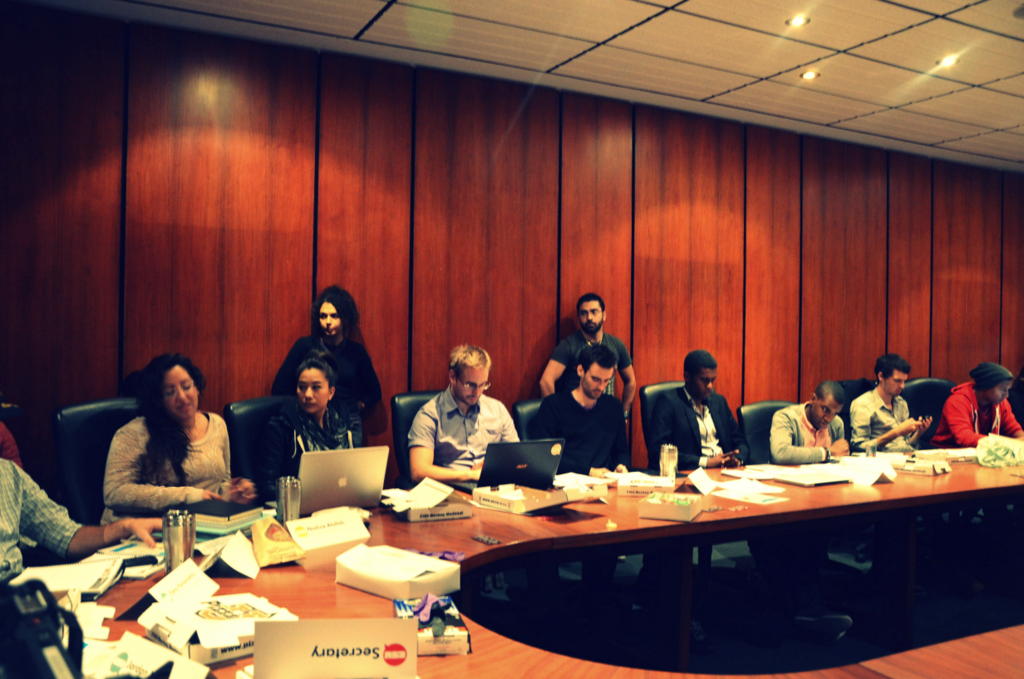Concordia Student Union VP academic and advocacy Lucia Gallardo released a statement Monday, Sept. 24 in response to a motion put forth by the CSU council asking for her resignation.
At the first regular CSU meeting of the year held Wednesday, it became clear that Gallardo was not in fact a registered student and was therefore unable to maintain her position as a member of the executive. Gallardo was not present at the meeting but CSU President Schubert Laforest explained that, because of “circumstances beyond her control,” she was unable to register in time for the fall semester.
In her statement, Gallardo explained that she is “an international student in financial need,” which makes her student status complicated. This is not the first time Gallardo experienced issues with her international status, for when she first submitted her candidacy for the CSU last year, she and Laforest were both rejected as ineligible due to registration.
“This has affected many aspects of my life and my academic career,” explained Gallardo. She went on to say that due to financial issues as well as challenges in her personal life, it was not possible for her to sort out her status.
“I have spent this summer trying to put together the money to afford to continue at Concordia, and the [Did Not Enter] deadline came too soon for me to succeed.”
At council, members made the decision not to allow Gallardo a 15-day period to try and resolve her student status. In the letter, however, she stated that she “may still be able to resolve the issue,” and she will continue to work toward a solution throughout this week.
“I wholeheartedly ask Concordia students to grant me the opportunity to work on this solution for the week, before giving up the portfolio I feel so passionate about,” she wrote.
A special council meeting will take place this Wednesday, which will cover appointments to various CSU bodies, as well as Gallardo’s resignation. She told The Concordian that she would be in attendance at that meeting and hopes to sway council with her statement on the particulars of her registration issues.
“If it cannot be resolved by Friday, of course I will step down,” she said. “I would be more than happy to help train my replacement if it comes to that.”
At the meeting on Wednesday which began at 6:30 p.m. and ended at 1:30 a.m, some councillors expressed concern over the information coming to light and the manner in which it was done.
Chad Walcott, CSU councillor and former VP external for the CSU, stated that he was “extremely disappointed with the events that [had] transpired.”
Following the decision regarding VP Gallardo, President Laforest made a statement in closed session addressing his own status issues and explaining privately to council why he is unable to sit on Concordia’s two major administrative bodies: Senate and the Board of Governors.
Laforest then explained that his issue was not of status but of an academic nature, and that VP loyola Stefan Faina would replace him on Senate. Councillors initially raised concerns when it became apparent that Faina had never attended a Senate meeting before. It was decided that VP external Simon-Pierre Lauzon, who already sits on Senate, would help to prepare Faina for the position.
As for the BoG, Laforest proposed that Lauzon be appointed to take his place on an interim basis until his eligibility can be dealt with. According to university by-laws, the reasons why a student would not be allowed to sit on the Board of Governors are that either they are not in good academic standing, or that they have violated the Academic Code of Conduct or the Code of Rights and Responsibilities within the last three years.
Walcott was quick to criticize the plan, saying that he was “not confident at all that [Lauzon] will be able to do any of his external work, while sitting on almost seven committees.”
Ultimately, council decided that alternate governor and former CSU president, Lex Gill, would be appointed primary governor until Laforest is able to reclaim his seat.
